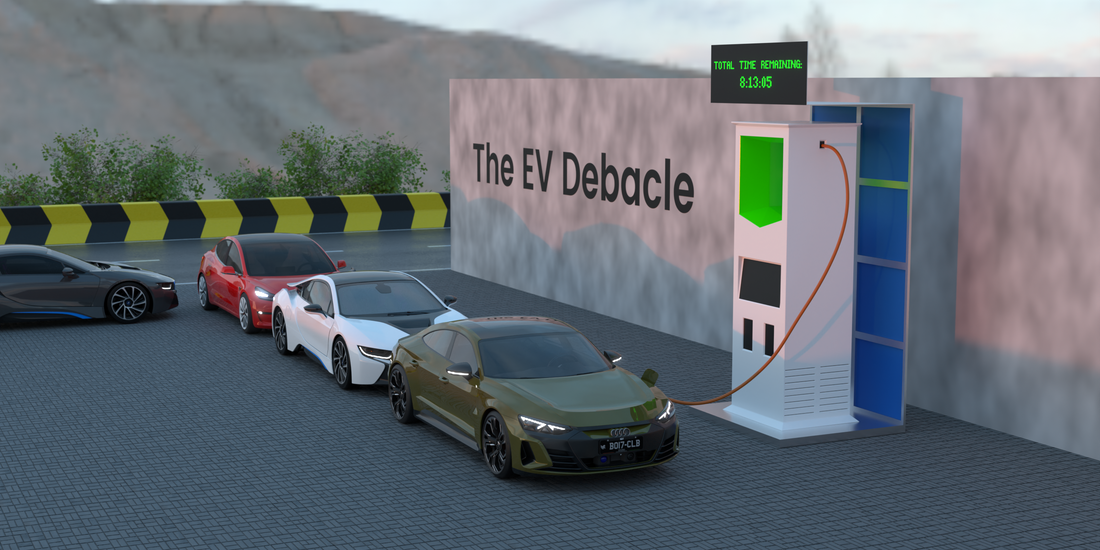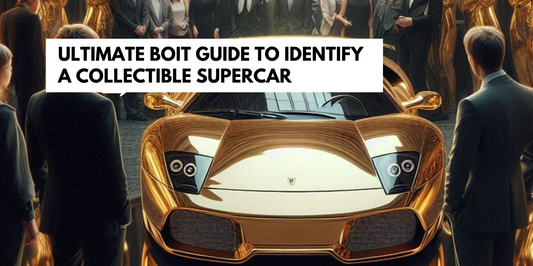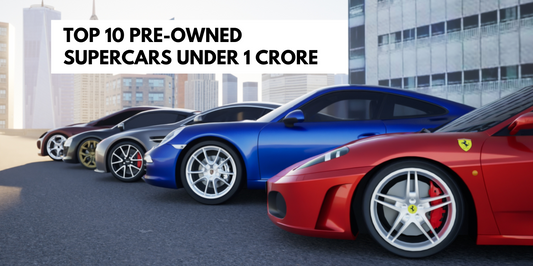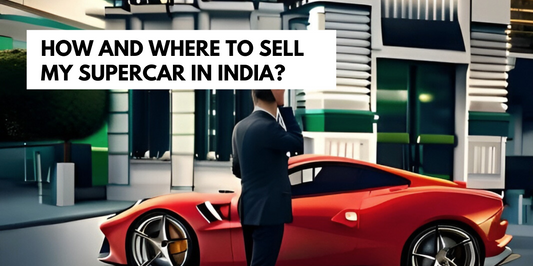SHOULD I BUY AN EV?
NO. The End.
WHAT IS AN EV? ARE EV's BETTER THAN SUPERCARS?
The very reason that makes every true petrolhead cringe to the bottom of their spine - Introducing the Electric Vehicle. Designed to keep things quiet, pastel, and general vibes of Palo Alto - EV's have an overall futuristic vibe to everything about them. Surprisingly, the first Electric Vehicle dates back to 1828 (You read that right) with significantly implementable prototypes developed between 1830 to the early 1900's. The world then didn’t understand the global environmental impact of combustion engines, CFC's and pollutants that plague the Earth today (Shoutout to my tree-huggers out there - one love).
Set out to destroy those very fumes that were destroying us - or to at-least make a global marketing campaign that justifies a Giga Factory for batteries, to offset the carbon footprint from your other aerospace business - We globally decided that we were going to let batteries power everything!
But… THE EV OF TODAY IS NOT AS INNOCENT AS YOU MAY THINK. Let’s dive in.
EV's & BATTERY TECHNOLOGY
Digging deeper into what’s under the hood (Apart from storage space), the notable Hurrah about EV technology lies in the underbelly of Battery Technology. Traditional Lead-Acid batteries did not carry the correct energy-density to hold and dissipate the correct kind of power to give EVs the long mileage they characteristically need. Incoming - Lithium Ion batteries.
Li-ion batteries are also not new technology. Powering mobile phones, remote industrial communications equipment to powering domestic use laptops and devices - Lithium has been through its own innovation of chemistries to find suitable applications for this wonderful technology. The correct kind of power density allows Li-ion batteries to hold a great amount of charge with a low weight, volume and provide excellent portability.
Lithium batteries specifically for cars contain a chemical reaction of Nickel, Magnesium and Cobolt. All elements, all existent on Earth, some rare, some abundant. Lets introduce some electricity into this chemical cell, and this creates that wonderful power-carrying capacity that allow all EV owners to enjoy their EVs with the correct amounts of range anxiety throughout their ownership journey.
Now here’s the real problem - We are at the beginning of this evergreen revolution and we've already run out of Cobalt on this planet. At least not enough to sponsor the next industrial revolution. Then comes the next set of problems - Lithium is only 65% recyclable, unlike lead acid batteries from the past that were 99.6% recyclable. 35% of that non recyclable material gets dumped in places that would make you think combustion wasn't such a bad deal (Oceans, Underground, Dedicated Wastelands). The explosive properties of the Li-ion NMC Batteries that power EVs also makes one think how joyous is that 350 KM family road trip on a ticking time bomb? Mix this with a lack of proper infrastructure that could result in poorer life, higher replacement costs could be a major cost of ownership for an EV buyer.
Full Electric Vs. Hybrids Vs. Combustion Engines
Now let’s do a quick comparison of the various technologies out there. Hybrids come in various stages of intervention and pairing. It’s almost like a wine and cheese pairing, except quieter.
You can have a mild hybrid - a combustion engine paired to a motor that charges with an alternator when the car is in motion or generating by capturing the mechanical energy from the brakes.
A Medium Hybrid is better than a steak gone wrong with a 50:50 power distribution between combustion and electrical energy. This also is powered by mechanical energy and hence makes logical sense an a genuine option for EV technology by optimising usage between combustion and electrical power, giving you electrical power in lower speeds and during acceleration and only combustion power at higher performance bands.
Time to really bring the rage out. A Full hybrid is just nuts when you think about it as a concept. A Full Hybrid, In India, is a funny story you will now read. India was a power deficient country upto 2018. Having just achieved power surplus status 4 years ago, India is yet to overcome its 47% distribution loss of power. Distribution loss is calculated by comparing “How much was delivered” Vs. “How much was produced”. With power theft and poor infrastructure still at the helm, it’s ludicrous to think a full electric is anything more than a 80km radius-use vehicle in India. Sure, they make absolute sense for short distant city runs, and probably do the same for the planet paper straws do, but bring these to the highway NOT good sir and madam!
Traditional combustion engines are now becoming collectibles. So what if Fuel will cost Rs. 500 in the future and combustion engines will be a novelty to drive around, even more boasting value than presently. V10s and V12 will be the real party pieces here, making heads turn and our under-utilised ear drums of 2035’s will get a run for their money.
Our vote is for V10 & V12s. Find them, keep them, hold them.
RANGE ANXIETY
Every EV owner will take this feeling to their grave. The bright side is that they will live on a cleaner planet, for longer, in doing so and I guess that’s a good thing for the planet, not so much for the EV owner though. Actually, we’re thinking this isn't a bright side at all, we just want to use positive words before we absolutely destroy your hopes and dreams.
Range anxiety is here - and it’s here to stay. With limited charging infrastructure and a growing demand for chargers across India, we believe a new kind of black market is brewing. Imagine standing in a dingy street, using a burner phone, calling your battery dealer and saying “accha maal hai na? (Its good stuff right?)”. Battery production is no where close to the growing demand of battery operated goods. With EVs now demanding another new level of production, only a few Global players are geared to cater to this demand. Almost no manufacturing for Li-ion cells exists in the country presently. Cells are brought from China and assembled into packs and supplied to local manufacturers. Charging, distributing, recharging, storing these batteries is an existing problem that on ground players are still trying to solve. There are murmurs about battery swapping (A subscription based model) which could actually address the range anxiety problem to a great degree, but pretend you didn’t read that. We’re all about the problems, not the solutions ;) - there’s no fun in that.
There are also newer technologies in development that seek to solve the current Cobalt problem we're facing. Maybe a complete transition to hydrogen fuel cells if they can be secured in a proper manner, who is to say what Elon is currently upto.
PERFORMANCE
I write this with my tail between my legs. EVs are hands down the most epic driving experience ever. The acceleration is pure. There’s no combustion engine and spark plugs and fuel and ratios all having to come together to make a symphony of sounds that eventually deliver torque, uh uh, its all DC electro-bolt power delivered instantly and that means instant torque and that means don't drag race with these in your Aventador, you will mostly come home in shame.
Barring the drama of combustion engines, EV’s win the performance section, and for that reason, we’re going to keep this section short in this article.
Summary
We are heavily biased towards the combustion side, in case you haven't realised already. While the whole world is putting on their rubber gloves and getting ready to charge up these battery powered cars of the future, a small group of people are collecting and clearing space for more V10 and V12, and millionaires already, they are poised to becoming the next Billionaires of the future.
Now in 2035 all we need to establish is - whether they became Millionaires by starting as Billionaires that bought a few cars? :)
Disclaimer: These are purely biased opinions of the author. Boit club or any of its affiliates in now way demote EV's and have no ill intent in shining a darker light on the subject. This article is also mainly to joke around and bring about a different perspective to the car industry and hence no part of this article should be taken seriously.
Author - Aditya Arora - CEO - Boit Club
A supercar owner for 10 years and a driver in India for nearly 30 years, Fatman as we affectionately call him, started driving at a young age of 9 and has owned some special cars through his years. With a strong hold of the supercar market, dynamics and a vast network, Aditya founded Boit Club in 2017- the one place for everything supercars - made easy, transparent and financially sensible. Follow him on twitter here.
References for some of the data can be found in the below links:
Here - This link can be used to get some data referred to in this article.
Here - This link is worth a read to technically know more about the impact of Li-ion batteries. Spoiler alert! It’s boring as hell.




